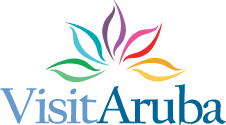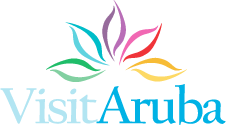Language
You will find that most Arubans are able to speak English well, and of course being a Dutch island with a Dutch educational system, most everyone is fluent in Dutch. About 13% of the population also speak Spanish at home as their first language of choice, and a larger part of the population can also converse in Spanish quite fluently. So these are the main three "imported" languages in which Arubans can communicate very well, in addition to our native tongue.
The mother-tongue of Aruba is Papiamento. It is a language, not a dialect, and evolved from several older languages as most languages today have done.
Our language's name is derived from the Portuguese verb 'papear' which means 'to jabber' or the verb in Spanish meaning to speak incoherently. The word 'papiamento' also has the same meaning as parliament which is derived from the French word 'parler' (to speak).
Papiamento began in the 1500s to enable African slaves to communicate with their owners who had fled the Spanish Inquisition. In addition to their own language words, Portuguese and Spanish missionaries, Dutch merchants, South American traders and Indians added additional vocabulary. Today's instant international communications have added such elements as business English, computer jargon, food-related words and the colorful slang of many countries.
Linguistic scholars state that Arubans have an aptitude or an almost instinctive flair for languages. Four or even five languages as part of one conversation within a group is common, depending on who is being spoken to or who is doing the speaking.
Papiamento is fun!.. It has a rhythm of its own, and because of its comparatively small vocabulary, one must take care to put the emphasis on the right syllable. Some words spelt the same way have a totally different meaning when pronounced incorrectly. Don't worry though, you'll pick up bits and pieces quite quickly and its always nice to hear visitors using our language.
These are a few frequently used words and phrases:
| Welcome | Bon bini |
| How are you? | Con ta bai? |
| Fine, thank you | Bon, danki |
| Thank you very much | Masha danki |
| You're welcome | Na bo ordo |
| See you later | Te aworo |
| Very good | Hopi bon |
| Sweet | Dushi |
| My darling/sweetheart | Mi dushi |
| A Kiss | Un sunchi |
| Congratulations/ | Masha pabien |
| Happy Birthday | Masha pabien |
| Have a nice day | Pasa un bon dia |
| Goodbye | Ayo |
| Good morning | Bon dia |
| Good afternoon | Bon tardi |
| Good evening/ | Bon nochi |
| Good night | Bon nochi |

